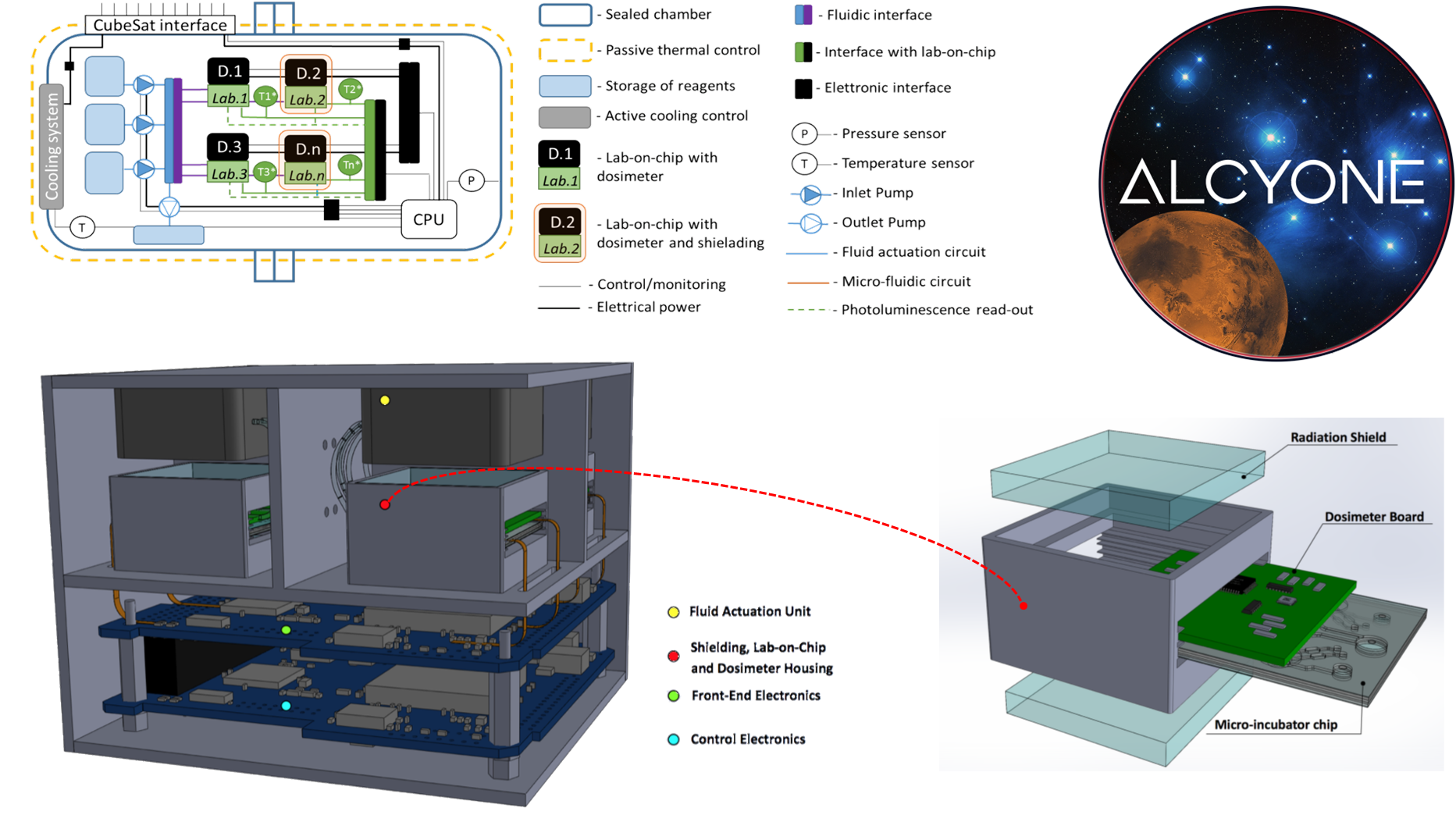ALCYONE

ALCYONE - Autonomous Living Cell analYsis ON-chip for Evaluation of space Environment Effects: low-power integrated lab-on-chip for the assessment of radiation damage on living systems in nanosatellite missions
ID Call: HORIZON-CL4-2022-SPACE-01 Strategic autonomy in developing, deploying and using global space-based infrastructures, services, applications and data 2022
Sapienza's role: Coordinator
Sapienza's scientific responsible: Augusto Nascetti
Department: Scuola di Ingegneria Aerospaziale
Start date: 01/11/2022
End date: 31/10/2025
Project Abstract:
The project aims at the design and implementation of a new analytical platform by implementing a set of innovative technologies that can provide a highly integrated solution for in situ analysis of the effects of the space environment on model biological systems and for the evaluation of shielding technologies combined with radioprotective agents. The main objective of the project will be achieved through the development of a lab-on-chip device with integrated thin-film sensors and actuators that will implement an extremely compact cell incubator capable of sampling the state of cell culture during a space mission using bioluminescence-based real-time monitoring techniques. Genetically modified microorganisms will be designed to monitor specific stress responses with a luciferase-based reporter system. An electronic system will be integrated into the platform to characterize the radiative environment allowing the correlation between observed biological effects and radiation exposure to be assessed.
Key features of the proposed technology include low power consumption, extreme compactness, high data efficiency and full automation that make it suitable for cubesat missions. In particular, a complete cubesat payload will be designed that can provide a testbed for a preliminary series of experiments to be performed on ground-based structures simulating the deep space environment. The proposed system will thus represent a key element in paving the way for human missions to deep space as it offers the possibility of testing the effects of long-term exposure to the space environment on a biological model using platforms as simple as cubesats.

The Sapienza team plays the role of project coordinator and oversees the development of the overall system using a concurrent engineering approach. Sapienza team will develop and manage the software platform for the implementation of the integrated design model required for information sharing among the teams participating in the project. In addition, the Sapienza team plays a key role in the development of the lab-on-chip system which represents the core of the entire project. Thanks to the experience gained over the past decade with both ground application projects and actual space missions like AstroBioCubeSat, the Sapienza team will also perform technical tasks in both the integration and testing phases of the subsystems and of the entire final system.
